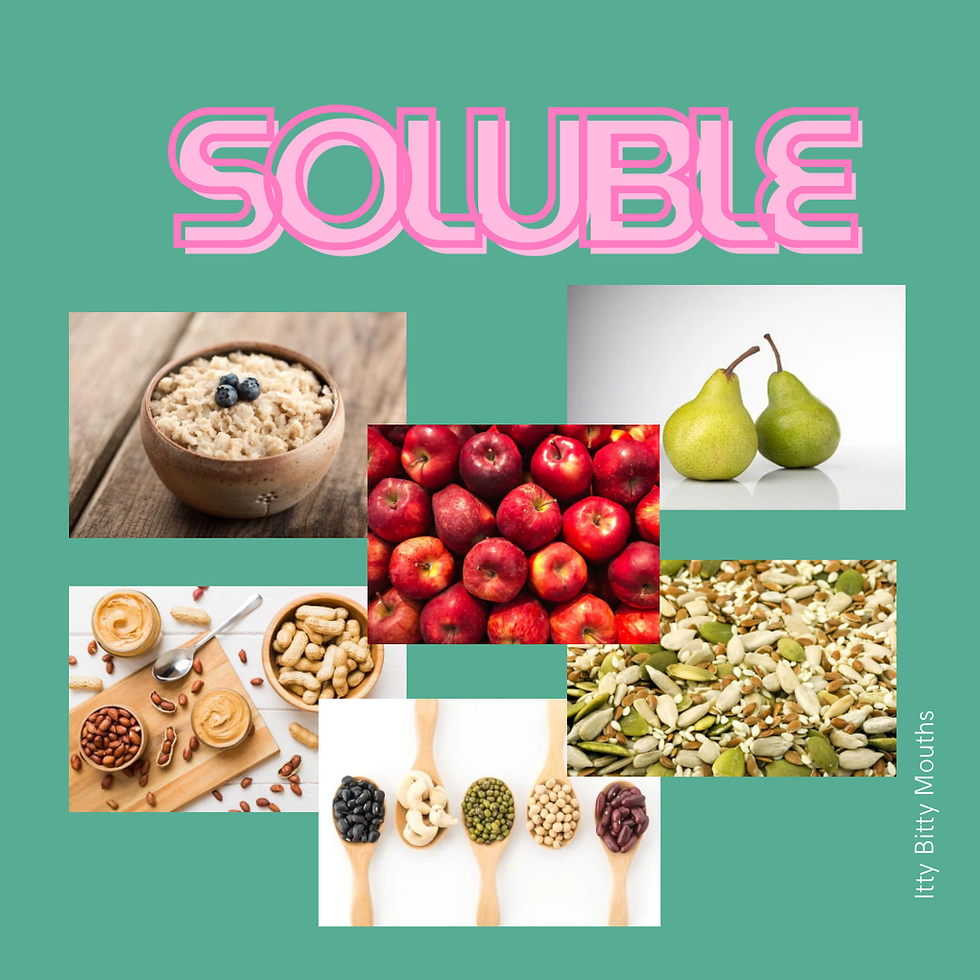Choosing the "Right" Formula
- Amanda Graves
- Oct 22, 2024
- 3 min read
Updated: Oct 29, 2024
Welcome to Itty Bitty Mouths, where there is zero tolerance for shaming, and that includes your choice to give your child formula! Every caregiver should feel empowered to seek help without fear of judgment. We're all in this together, striving to be the best caregivers we can be! Now, let's dive into some fantastic tips for selecting the perfect formula. Let's go!

Tips
Talk to your healthcare provider about what formula to use. There is no perfect formula and they all have pros and cons.
Choose a formula that is age-appropriate for your baby.
Look for a formula that contains iron, as infants need iron for proper growth and development.
While there are no negative consequences to switching formulas often, it can lead to tummy struggles, so you may try and be consistent once you find the one that works.
If your baby has a specific health condition or allergy, you may need to choose a specialized formula (see below).
Infant formula is not interchangeable with real milk!
When looking at the infant formula aisle it can be overwhelming all the different types. While there are many different brands of formula, most come in either a dry powder that you mix with water or ready to feeding liquid, and then most commercially available brands fall into one of these primary categories.
Types of infant formula
Cow's milk formula - most popular in the States and commonly tolerated by infants. It's easy to obtain and there are generic options as well most of the time.
Goat's milk formula - much more difficult to obtain in the States and infants with dairy intolerance can still react to the milk protein in this formulation.
Soy formula - formula made from soy beans comes with some caution. Soy beans are naturally high in phytoestrogens which is not a huge concern for adults and children who are larger and eat a well balanced diet, but when infants are only consuming soy based formula, they are getting much higher levels of phytoestrogen for them size. This formula is a vegetarian option though if needed.
Lactose-free formula - just what it sounds like, it has no lactose. This is for babies that have a true milk intolerance, which is actually rare so it's recommended to seek medical advice before switching to this formula.
Hydrolyzed formula - these formulas are often marketed as "sensitive" or "comfort" formulas. They are still cow protein based formulas, but they are partially broken down to make the job of digestion easier for the baby. This formula can be either partially hydrolyzed or fully hydrolyzed depending on what a baby needs.
Amino-acid based formula- these formulas are made only from amino-acids and should only be used with medical guidance for patients with severe known allergies, gastrointestinal disorders, and/or malabsorption disorders.
High-calorie formula - typically prescribed for those that were born premature or are gaining slower than expected because it has more calories in a smaller volume.
Anti-reflux formula- these are typically thickened (either in the bottle or in the gut) to help the liquid stay down and not cause reflux. There are specific mixing instructions with these formulas though so read the label carefully.
Dried milk powder, Condensed milk, Evaporated milk, Oat milk, Almond milk, etc.- these products are often found in the baking section at most groceries stores and are not interchangeable with infant formula! They are fine to cook with though!
Wow, that was so much! No wonder we get overwhelmed on the grocery store aisle!
Written by Dr. Amanda Graves, SLPD, CCC-SLP, CLC www.IttyBittyMouthsFeedingSLP.com



Comments